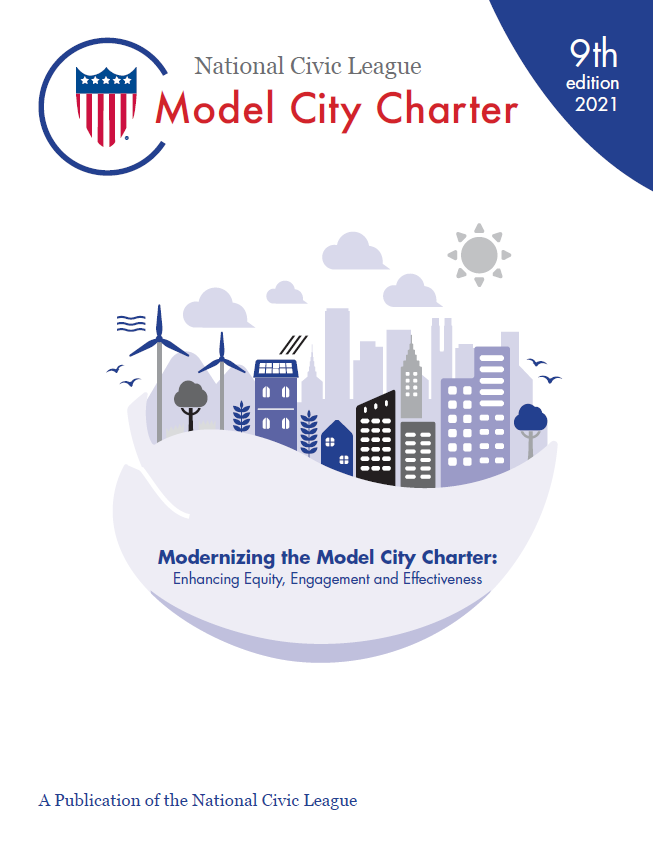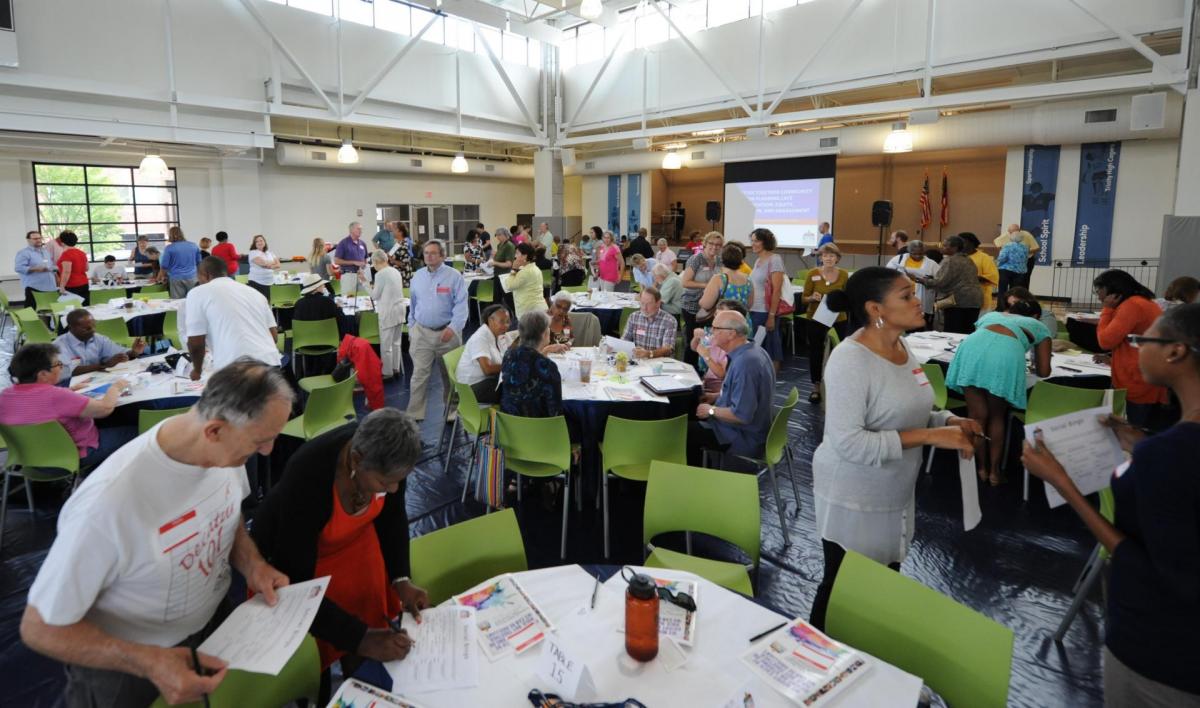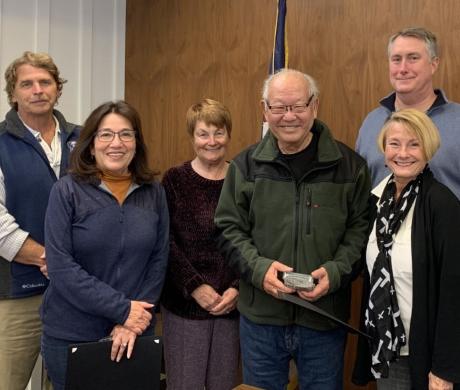Making equity stick: How to build diversity, equity, and inclusion into the foundation of your city
Doug Linkhart is the president of the National Civic League. He can be reached at DougL@NCL.org.
Diversity, equity, and inclusion (DEI) are at the heart of good civic engagement. Communities with inclusive civic engagement — where everyone has a place at the table to define, direct, and implement public services and amenities — experience greater equity, display greater civic pride, and exhibit stronger civic responsibility.
As our nation’s values have evolved, local leaders have placed an increased emphasis on creating more equitable and inclusive services — for example, through policing reform or the modernization of election and voting practices — as well as through comprehensive work to improve equity through ordinances, policies, rules, and dedicated offices.
One overlooked tool that offers an opportunity for change through structural reform is local government charters. For over a hundred years, cities have reflected core values like ethics and professionalism in their charters, with many looking to the National Civic League’s Model City Charter as an example. First published in 1900, the Model City Charter encouraged the adoption of these values as part of reforms aimed at reducing corruption, partisanship, and waste in local governments.
During this past year, the National Civic League worked with the International City/County Management Association, National League of Cities, and American Society for Public Administration, and a steering committee of 22 national representatives and experts to produce the first full revision of the charter in a decade. This revised charter elevates social equity, alongside traditional core values.
Diversity, equity, and inclusion are as important to governance as nonpartisanship or fiscal prudence, all of which should be reflected in city charters, along with ordinances, organizational charts, and other foundational aspects.
Many cities have already started this work themselves, including some in California. Although many cities have come to accept the age-old tenets of professionally-run cities governed by a representative legislative body, there have been amendment efforts in some cities to alter the balance of power.
For example, a charter review commission in San Jose referred measures to the November ballot that would change the timing of the mayor’s election to presidential election years — which traditionally have higher voter turnout — and switch elections to rank-choice voting. The commission also recommended expanding the number of council districts from 10 to 14 to better reflect the city’s growing population. Commissioners hope all three changes, if approved, will increase voter participation and representation.
Other recent changes include a 2018 measure in Cathedral City, where voters approved a change that made the mayor a rotating position among council members. The city recently adopted an ordinance clarifying the rotation order, which will ensure that all council members can serve a term as mayor. And in Stockton, voters approved a 2016 measure to have city council candidates elected exclusively by their districts, strengthening the role of district voters, especially those from low-income and minority communities.
Other cities have changed the timing of elections, considered ranked-choice voting, created new police oversight bodies, and a variety of other charter matters.
Including equity as a core value
As with most issues, equity is felt most keenly at the local level. “While typically viewed as a national issue, the problems of inequity, whether social, economic, or otherwise, often manifest most clearly at the local level,” said Benoy Jacob, director of the Community Development Institute at the University of Wisconsin and a member of a social equity working group that advised the steering committee.
Examples of charter changes that can drive lasting improvements in social equity include:
- Underscoring the city manager’s role in promoting social equity throughout city government.
- Specifying that departments, offices, and agencies adopt an equity lens to shape decisions and activities, including personnel, land use, development, and environmental planning.
- Emphasizing the importance of social equity in budgeting, performance assessments, and access to services.
- Stating that principles of justice, equity, diversity, and inclusion should guide the execution of public engagement activities.
- Ensuring that elected offices are fully representative of the community by establishing procedures and districts that encourage representation of all members of a community.
Equity may be defined and implemented in a variety of ways based on the characteristics and interests of a community. Therefore, this work requires an inclusive community engagement process to gather insights and direction from the community itself.
Increasing civic engagement and democratic practices
The revised Model City Charter elevates the importance of just, inclusive, and equitable public engagement, the values of democratic professionalism and ethics, and community-centered governance and problem-solving. These changes are driven by many forces including:
- The complexity of the challenges facing local governments. Leaders must negotiate tensions and tradeoffs among competing, underlying public values in collaboration with community members, through deliberative problem-solving, planning, and decision-making, rather than solely through technical expertise or adversarial politics. In addition, community members must have tremendous problem-solving capacities. Many public problems simply cannot be addressed without the support of large numbers of people.
- The need to bridge divides. More participatory and equitable practices help achieve success when building mutual understanding and establishing consensus across different groups of people.
- Equity and engagement require one another. Making public engagement more inclusive and participatory can help produce more equitable outcomes for a wider range of people, as will engaging people in evaluating whether policy outcomes are in fact equitable.
- The importance of civic health. Strong, ongoing connections among community members, robust relationships between community members and public institutions, and positive attachments between people and the places where they live are highly correlated with a range of positive outcomes — from better physical health to higher employment rates and better resilience in the face of natural disasters.
Inclusive civic engagement is recommended for all charter sections involving public outreach and deliberation. For example, some cities may want to update their charters so that city departments and offices must include civic engagement in their planning and decision processes, for elected positions to incorporate engagement in their processes, and for the public to be considered a partner in all city affairs.
Other charter matters
Besides a new emphasis on equity and engagement, the new version of the Model City Charter continues to advocate professional, nonpartisan city governance with mayors and legislative bodies that work together with a manager to run city departments and solve public problems. The document emphasizes the facilitative roles of the mayor, importance of the city council’s relationship to the city manager, direct election of mayors, and the role of city managers as innovators and nonpolitical facilitators of partnerships among community stakeholders.
Producing a lasting change
It is not a coincidence that the public holds a higher level of trust in local government compared to federal and state governments. That was the intention of the early authors of the model charter and the reason for the emphasis on professionalism and integrity. Inequality and lack of public engagement undermine trust and community.
Unless we include the full community in decision-making, local governments could lose not only the public’s trust, but its cooperation as well. Engaging your residents in efforts to revise your charter is one of the most important steps you can take in creating a thriving community that reflects its most fundamental and democratic values.
A copy of the new Model City Charter can be accessed free of charge through the end of 2022 on the National Civic League’s website.





